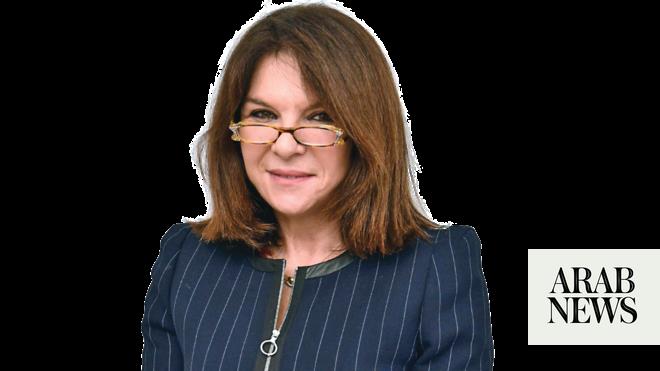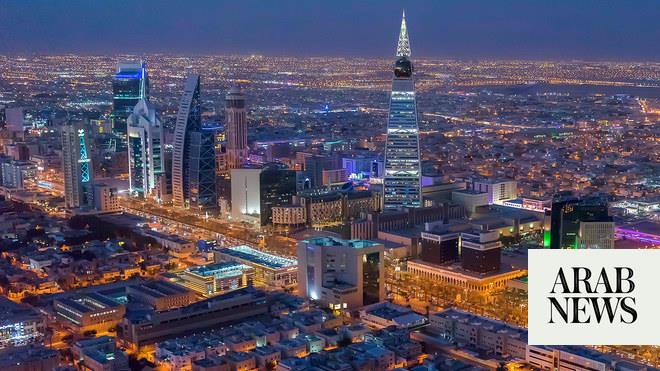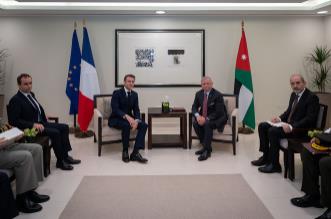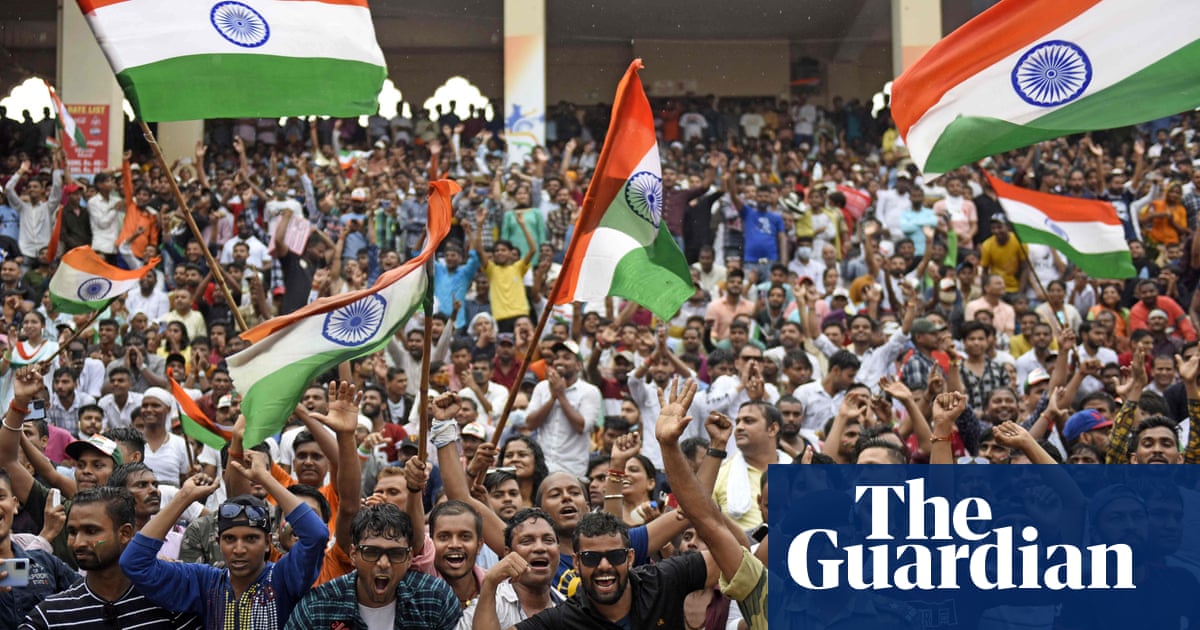
RIYADH: Saudi Arabia plays an important role in the fight against money laundering, French politician Nathalie Goulet said during a forum this week in Riyadh on global uncertainties and their impact on the Middle East region.
Fighting money laundering would create a much more favorable business climate, Goulet said in an exclusive interview with Arab News.
The forum, held under the patronage of the King Faisal Islamic Studies and Research Center and in collaboration with the UN Alliance of Civilizations and the Nizami Ganjavi International Center, covered key themes including the new world order, which will have to face up to several challenges that call for restrictive, even draconian, measures to weaken the action of parallel economies undermining development and peace processes around the world.
The forum held in Riyadh covered key themes including climate change and its impact on the economies of the Middle East. (AN photo by Huda Bashatah)
Goulet, a senator for Orne since 2007 and a member of the Union of Democrats and Independents, said that money laundering was a global issue that impacted the stability of countries.
She said that money laundering represented 3 percent of gross world product, which amounted to more than $2,000 billion. “Not all money laundering is the financing of terrorism, but the financing of terrorism involves money laundering,” she told Arab News.
The issues of sustainable development, human rights and economic development are linked to the “parallel economy with money laundering, drug trafficking, human trafficking, plant trafficking, animal trafficking and, of course, corruption,” she said.
A few years ago, Crown Prince Mohammed bin Salman launched a campaign called ‘No Money for Terror.’ It was a first step, a very important first step, and one that was widely followed.
Nathalie Goulet , French senator
Stressing the need for regulations and frameworks to address the problem of financial crimes, Goulet said that migrant smuggling, which not only involved human beings but organ trafficking and drug smuggling, “brings in as much money as Finland’s national product.
“You have to put figures on it,” she added. “When you have figures, things take on a different consistency … So, it’s an absolutely necessary policy.
“Migrant smuggling alone is worth $7 billion. And you can see that the issue of migrant smuggling is disrupting our societies in Europe, in Italy, in France … (it) is driving up the extreme right.”
The fight against money laundering involved the intervention of a large number of international organizations, but it must comply with strict rules and the effective involvement of the legislative powers of governments and international organizations.
Speaking about efforts to combat corruption and money laundering, Goulet said: “Saudi Arabia has just taken a huge step forward. A few years ago, Crown Prince Mohammed bin Salman launched a campaign called ‘No Money for Terror.’ It was a first step, a very important first step, and one that was widely followed.”
Recently, Saudi Arabia entered a much more practical phase in the fight against corruption and money laundering. The Kingdom now fulfils almost all the obligations of international organizations, and the Financial Action Task Force and Egmont Group, which met a few days ago in Saudi Arabia.
Elaborating on practical measures that can be taken by countries and organizations, Goulet said that it was “important to hit traffickers in the wallet” through sanctions.
“So, we have all these sanctions, which are individual sanctions, we have collective sanctions, we obviously have all the United Nations sanctions on these issues, and then we have nations like France, which is now applying much tougher legislation on ill-gotten gains.”
Goulet added that it was important to “weigh up a number of criteria. For example, can we be a magnet, a hub for cryptocurrencies, but without trying to regulate them? Can we be a hub for ill-gotten gains from the misappropriation of resources in Africa and at the same time meet international criteria? Can we accept dirty money from Russia and at the same time fight for the liberation of Ukraine? And all this is ‘realpolitik.’”
The FATF’s grey list contains jurisdictions that have been placed under increased monitoring due to a country’s strategic deficiencies, which can significantly affect its business climate. The UAE, Goulet explained as an example, was recently taken off the list “because it has signed a number of conventions but remains on the European Parliament’s grey list of countries.”
If a country is on the list, which indicates that it does not comply with all the rules on money laundering, companies that have headquarters in that jurisdiction are more closely monitored and controlled and this significantly impacts the climate for doing business in.
The Kingdom became the first Arab nation to gain full membership of the FATF in 2019, in line with its efforts and financial and economic programs to achieve Vision 2030, which contributes to supporting the development of the national economy and enhancing the efficiency of the financial sector, one of the important objectives of the Financial Sector Development Program under the leadership of the Ministry of Finance.











